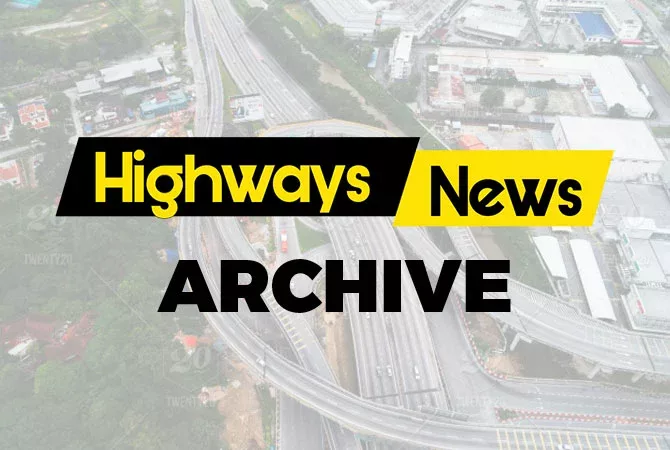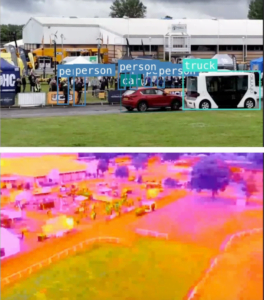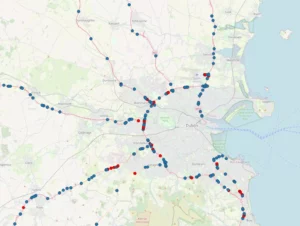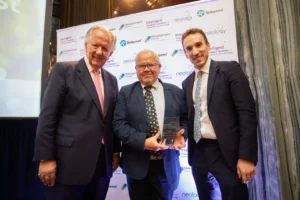Leading members of ITS (UK)’s Connected Vehicle Forum are warning some of the benefits of the eCall safety system are not being realised in the UK because people simply don’t know how to use it.
eCall has been mandatory in all new vehicles for more than two years, but there is concern that drivers have no idea whether or not they should use the button, often marked SOS, in their vehicle. eCall makes a call to the emergency services and also simultaneously automatically shares the vehicle’s exact location. Calls can be made manually by a vehicle’s occupant, and it makes an automated call if it detects it has been involved in a crash through, for example, airbag activation.
“Buried in your handbook is a little story about the SOS button and how you should use it,” Andy Rooke of Shadow Focus told the ITS (UK) Connected Vehicle Forum webinar. “But it’s not on the first page and I doubt very much if the salesman even bothered mention it.”
Fellow panellist Danny Woolard from Chiltech backed up the comment saying, “The ultimate beneficiary of eCall – the driver – has no idea what it is. [There is a] fundamental need for education at all levels, the driver, the OEM, the dealers, and government as well.”
The webinar also heard how eCall could be ideal for reporting breakdowns on smart motorways. Rooke added, “When you are involved in, or see an incident which would normally mean you dial 999, you should press your eCall button. It contacts the emergency services with details of vehicle and location straight away, hands free. cCall could really help improve response times on smart motorways, for example, when time is of the essence, and also on minor country roads, where the location is difficult to pinpoint.”
The moderator of the webinar, RAC Foundation Steve Gooding, though, underlined the key importance of making sure drivers know about the technology, “I think, really, it comes back to education. You might buy a vehicle or hire a vehicle, but if nobody knows about e-call you won’t know it’s there or how to use it, and that means we’re missing the benefits Despite all the effort the UK has invested in making it happen, more needs to be done if that effort isn’t to be wasted. That’s why I think it’s so important that we do continue the work to inform the motoring public.”
Reflecting on the discussion, Forum Chair Andy Graham commented, “It’s frustrating to see such so many false alarms from people pressing the eCall button as they don’t understand when not to use it as well as when to use it. As eCall rolls out further in new vehicles and with apps and dashcams, this could be a real drain on the 999 service “
“This was an enlightening and equally a frustrating hour,” commented Jennie Martin, ITS (UK) Secretary General. “Enlightening because we heard how well the system works, and frustrating because the end user hasn’t had the tremendous advantages explained to them. This isn’t uncommon in ITS where the end user doesn’t know of the great work the industry does, but in this case it is essential they do know and ITS (UK) will work hard to support any publicity initiatives. It’s another way we can not only help our members but the industry’s ultimate users, the travelling public themselves.”




















